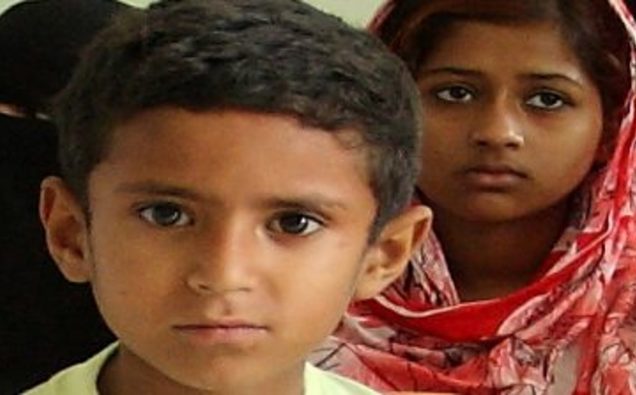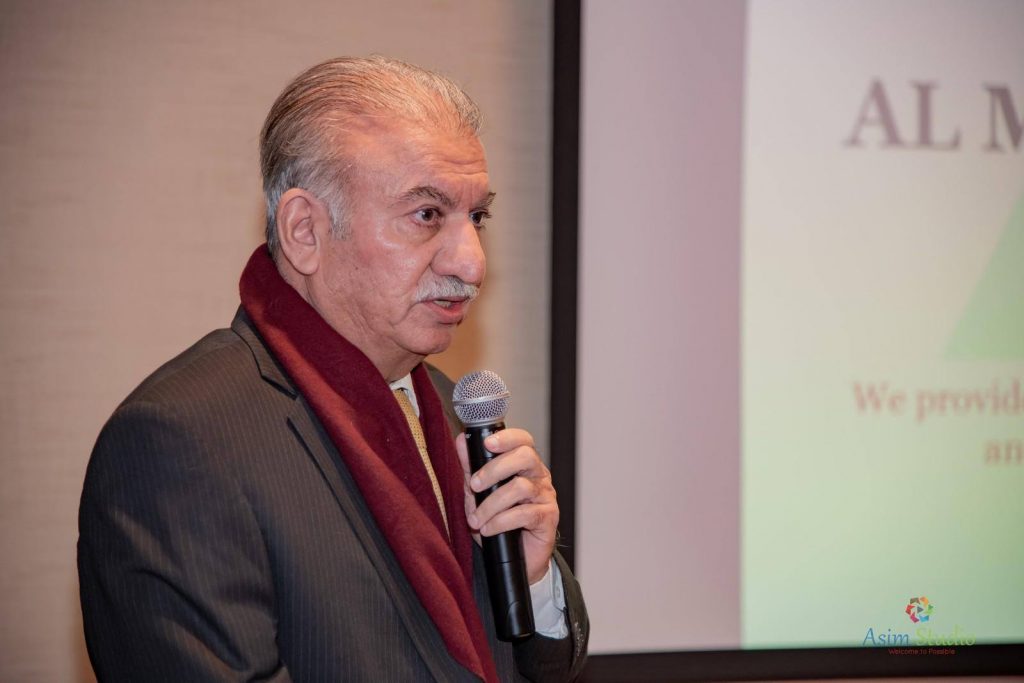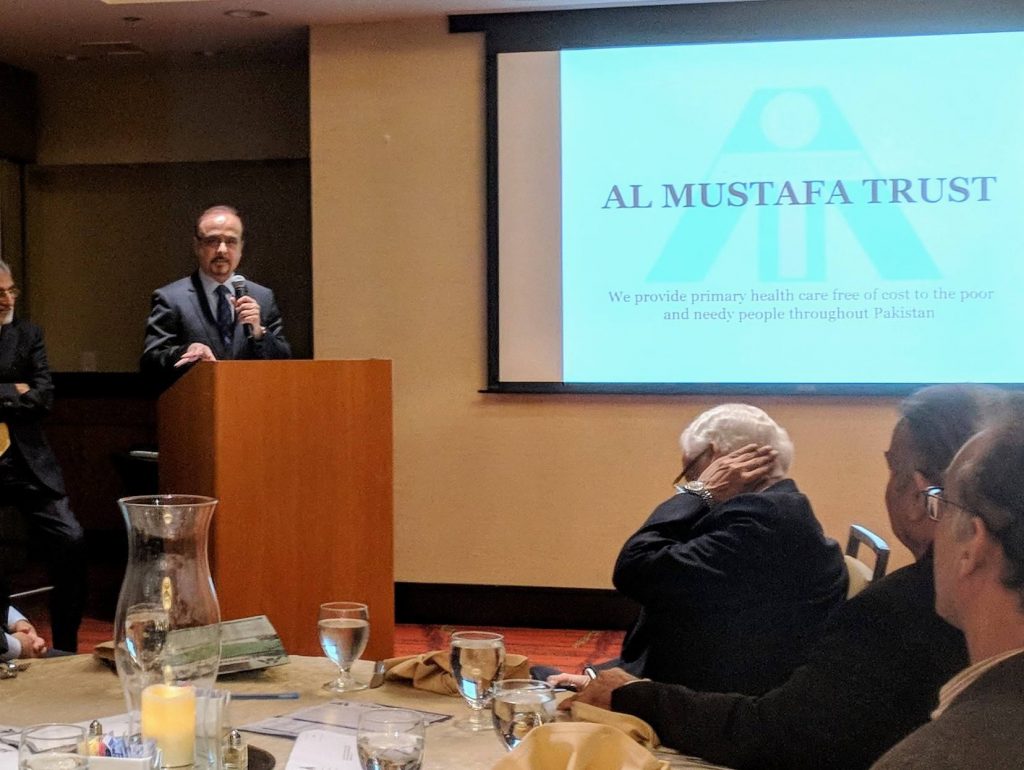
Al Mustafa Trust, one of the largest charitable healthcare organizations in Pakistan, held a fund-raising dinner in Falls Church, VA last week, with some leading Pakistani-American doctors and philanthropists in attendance.
The event afforded Pakistani-Americans an opportunity to contribute to the Al Mustafa Charitable Trust USA’s efforts to secure support for the healthcare work that the Trust’s medical centers, dispensaries and vans carry out in remote areas of the country.
Chairman of the Trust Muhammad Mustafa Khan said by supporting this organization, Pakistani-Americans can impact lives of underprivileged people seeking medical assistance in their country of origin.
Pakistan faces many challenges when it comes to public health, one of which is the lack of accessible healthcare. In Pakistan, one in 89 women die due to child-birth related complications. Almost 7 infants out of 100 die before they reach one year of age. 40 percent of children in Pakistan are malnourished. Public health, or lack thereof is one of the key challenges faced by any incumbent government of Pakistan.
The country spends a shockingly low percentage of its GDP (.2 percent) on healthcare. The poor quality of government provided health services in Pakistan is the major reason behind the large role played by the private sector in healthcare which basically fill a necessity gap left by the government sector.
In Pakistan, 68 percent of the total health sector allocations are directed to tertiary care, less than 10 percent goes for preventive measures and health facilities, and only 0.14 percent is for mother and child health. The country stands at 154th position among 195 countries in terms of quality and accessibility of healthcare.
Another key challenge faced by Pakistan is accessibility of clean, drinking water. Pakistan ranks number 9 in the list of top 10 countries with lowest access to clean water, according to one of the recent studies, 21 million out of the total population of 207 million, do not have access to clean and safe water.
Another World Health Organization study shows that 20 percent of urban areas and 13.5 percent of rural areas have unsanitary flowing water in the vicinity with no sewer, septic tank, or pit. The report also mentions that over 25 percent of the population may be at risk from arsenic contamination of water.
Against this background, some private hospitals and organizations like Al Mustafa Trust are essentially bridging the disconnects.
As described by the chairman, the Trust, established in 1998, now treats around one million people every year.
“We are currently providing primary health care to about one million people at our medical centers and dispensaries every year.”
“We are grateful to Allah that through our team of dedicated medical experts, volunteers, effective management and with the help of philanthropist community, we have been able to fill some of the gaps in providing health care to deserving people in many areas of the country,” he further added.
Dr. Tariq Shahab, a prominent Pakistani-American cardiologist and community leader, was the main speaker.
He praised the work being done by Al-Mustafa, saying “education and health are foundations of any nation or community’s success. Al Mustafa is doing a great job by reaching out to people in remote areas across Pakistan. Pakistani-Americans should support it.”
Al-Mustafa Trust was established in the 1998 by a group of retired civilian and military officers of Pakistan.
Khan, a retired general of Pakistan Army and a member of the trust encouraged Pakistani-American community to support their efforts.
“We are now a registered non-profit charitable organization in the United States and look forward to support from philanthropists and Pakistan-American community,” he said, while speaking at the fundraiser.
In USA this Trust is being led by Syed Shahid Ahmed. Currently, more than a dozen medical centers are operating in different cities including Rawalpindi, Attock, Chakwal, Talagang, Gujar Khan and Karachi. Medical centers are equipped with latest machinery like laser eye treatment tools, and they are treating the needy people with cost- free diagnosis at its medical centers and mobile facilities.
Besides, mobile vans of the trust also reach out to patients in remote areas. In addition to establishing medical centers, the trust has also sunk 21 tube wells in the interior Sindh to provide clean drinking water to the poor. Water filtration plants have also been installed at each of their centers to provide clean water to the patients.
“The Trust has also been registered in the United Kingdom since 2005. The Trust is running its affairs in a very transparent way and its account are audited by the reputed firms abroad and locally,” the chairman said.




















